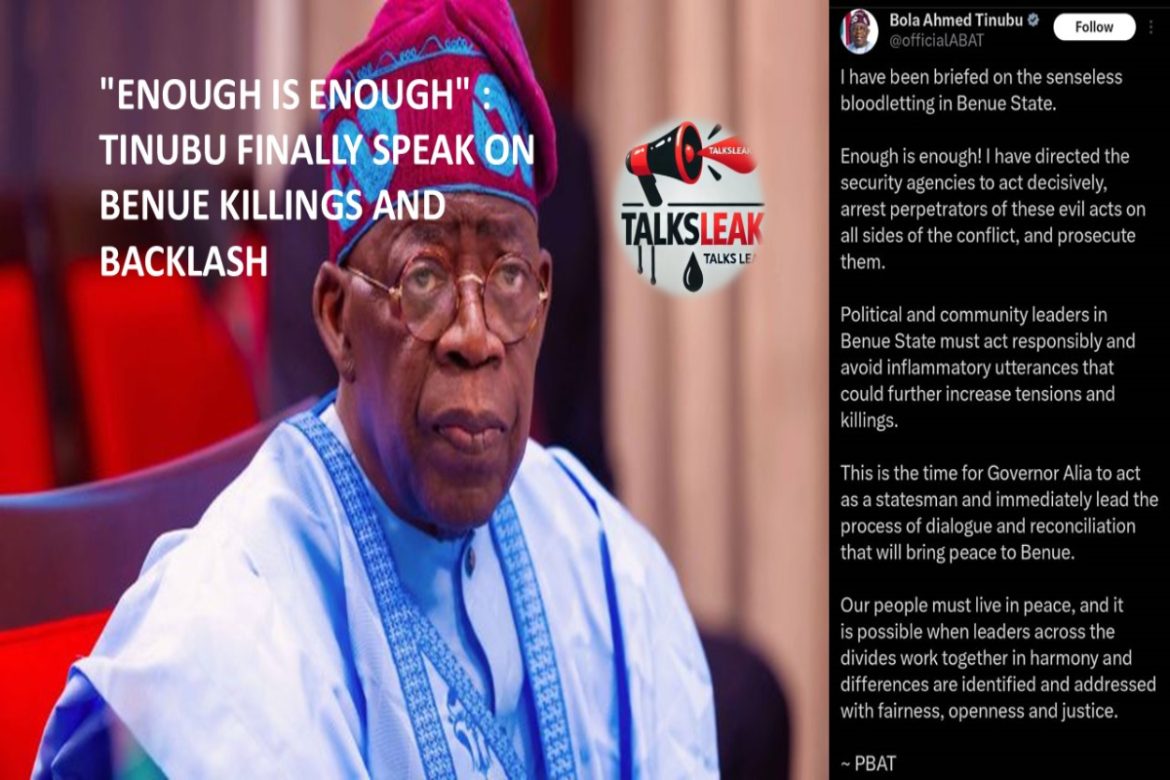On April 23–24, 2025, President Bola Ahmed Tinubu convened a high-level security meeting at the State House in Abuja, attended by service chiefs, the National Security Adviser (NSA) Mallam Nuhu Ribadu, police, intelligence, and military leaders. The aim: to address a disturbing surge in violence across Benue, Plateau, Borno, and Kwara States. Tinubu issued a forceful directive to “…end the escalating violence in … Borno, Benue and Plateau” and declared, “Enough is enough.” He demanded a full-scale overhaul of national security strategies and immediate coordinated action.
Today’s directive followed weeks of intensified attacks—gunmen and suspected herdsmen unleashed violence that resulted in over 50 deaths in Benue and 100+ fatalities in Plateau, displacing thousands . Tinubu, closely following developments even while abroad, urged regional and local authorities including governors and councils to actively participate in restoring peace
On June 4, the Charismatic Bishops Conference of Nigeria (CBCN) urged Tinubu to declare a state of emergency in Benue as violence persisted, pleading for immediate federal action.
Major Atiku Abubakar criticized Tinubu for spending weeks in France while bloodshed raged, calling his prolonged absence “an insult to a nation pushed to the brink.
SDP candidate Adewole Adebayo claimed Tinubu “failed to take governance seriously” and demanded decisive leadership.
Femi Falana SAN called for the federal government to restore law and order, citing the failure to enforce earlier bans on open grazing as a root cause.
The Middle Belt Forum acknowledged Tinubu’s public condemnation but highlighted “glaring silence” on Benue and called for robust relief and justice.
Benue rep Blessing Onuh described the killings in Otukpo as a “national emergency,” demanding swift federal intervention and prosecution of perpetrators
According to the Financial Times, April’s rural violence in Northern Nigeria, peaked in Benue and Plateau with over 150 fatalities, is rooted in clashes over land and resources—climate change and an influx of arms have intensified the herder‑farmer confrontations
Earlier, Tinubu had directed an overhaul of security strategies after his April 23 briefing, emphasizing cooperation with state, local, and community stakeholders to “work harder to restore security,” stating that such killings under his watch are unacceptable.
President Tinubu’s strong “Enough is enough” stance and directives aim to halt the brutal violence in Benue and neighboring states. However, activists, religious leaders, and political opponents continue to question his leadership—particularly his physical absence amid crisis and perceived lack of urgency. The effectiveness of the promised security overhaul remains to be seen as Nigerians await tangible results on the ground.


